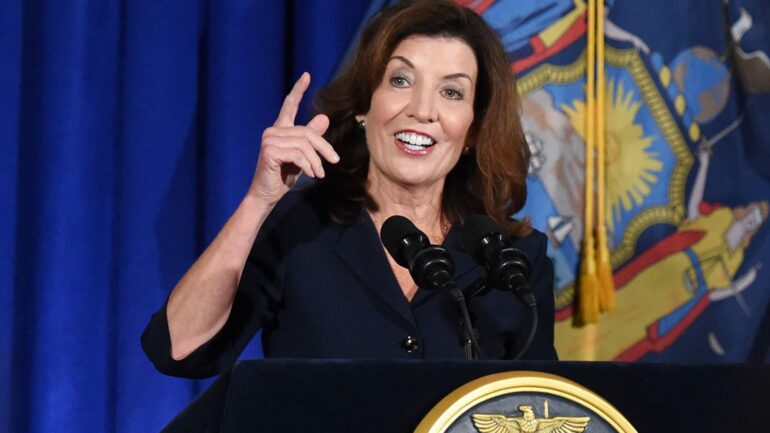TL;DR:
- Governor Kathy Hochul signed a bill into law in New York, making dissemination of AI-generated intimate images illegal.
- Deepfakes, fueled by artificial intelligence, are causing chaos in conflict zones like Ukraine, Israel, and Gaza by spreading on social media platforms.
- AI-generated pornographic content is being posted online without consent, with the aim to humiliate or blackmail.
- State Assemblywoman Amy Paulin and Senator Michelle Hinchey sponsored the bill to combat these harmful AI creations.
- Amy Paulin highlights that AI-generated deepfakes are disturbingly common and disproportionately target women.
- This legislation is a significant step towards protecting individuals’ privacy and dignity.
Main AI News:
In an era where artificial intelligence is reshaping our world, Governor Kathy Hochul has taken a decisive step to protect individuals from the harmful impact of AI-generated intimate images. With the enactment of a new law, the dissemination or publication of AI-created intimate images has been declared illegal in the state of New York.
The rise of deepfakes, AI-generated content that mimics reality with alarming precision, has sparked widespread concern, particularly in the midst of turbulent conflict zones like Ukraine, Israel, and Gaza. These malicious creations have flooded social media platforms, strategically designed to incite outrage and escalate violence.
Yet, there exists a darker dimension of deepfakes – pornographic images and videos generated by AI. These nefarious creations are often posted online without the consent of the individuals featured, with the explicit purpose of humiliation or blackmail. Recognizing the severe harm inflicted by such content, Governor Hochul signed a bill into law, championed by State Assemblywoman Amy Paulin and Senator Michelle Hinchey.
Amy Paulin, a driving force behind this legislative action, emphasizes the disturbing prevalence of these AI-generated deepfakes. She asserts, “These deceptive images are all too common, frequently wielded as tools of manipulation, especially targeting women. Their impact is profoundly hurtful and can leave enduring scars.”
Conclusion:
New York’s decisive move to outlaw AI-generated intimate images reflects the state’s commitment to protecting its residents from the negative consequences of deepfake technology. This legislation sets an important precedent and sends a clear message about the importance of safeguarding individual privacy and dignity in the age of artificial intelligence. From a market perspective, this development underscores the growing need for businesses to invest in AI detection and content verification technologies, as concerns surrounding deepfakes continue to gain prominence in society.

